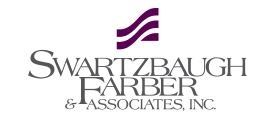Advocacy
Audits
Predictive Modeling and Health Care Audits
Continued efforts to mitigate health care costs have companies looking more closely at predictive modeling and health care audits. Predictive modeling is used to control short- and long-term health care costs by identifying employees “at risk” for high medical costs in the future. The strategy also includes a focus on total population and addressing the entire health care continuum; emphasizing long-term behavior change; supporting health plan designs with strong communication and incentives; and creating data-driven programs tailored to individual risk, health status, and learning agility.
Lowering health care costs for businesses by providing employers with a better understanding of what is emerging inside their health plans and using data to turn this information into actionable strategies enables employers to identify risks before they surface.
Health Care Audits
A growing number of employers are using dependent audits to remove ineligible dependents from their health care rolls in an effort to cut health care costs. It is important that employers follow up these audits with tightened procedures, such as requiring supporting documentation from employees, to ensure that ineligible dependents are no longer enrolled. For employers who have already exhausted the more traditional areas of cost savings such as raising contributions, restricting benefits, changing the plan designs, and introducing wellness and disease-management programs, these audits can be a much needed source of savings to a health plan. Audits can help employers avoid potential liability as well. Under Employee Retirement Income Security Act’s (ERISA) exclusive benefit rule, it is the plan sponsor’s responsibility to make sure claims are not paid for ineligible participants. Claims that are paid for ineligible participants create some exposure to liability for plan sponsors. Furthermore, publicly held companies are obligated to remove ineligible dependents under the Sarbanes-Oxley Act, which requires management to sign off on the accuracy of quarterly financial data. However, it is rare for chief financial officers to regularly coordinate with their firm’s HR or benefits departments regarding this issue


